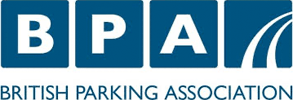That’s smart! New Traffic Order guidance will help councils manage our roads better
Self-driving cars, parking apps, and ride-share services are all poised to dramatically change how we use the transport network on our way to work, shop or for that social meet with friends and we must help local councils and others prepare our roads for the future.
Self-driving cars, parking apps, and ride-share services are all poised to dramatically change how we use the transport network on our way to work, shop or for that social meet with friends and we must help local councils and others prepare our roads for the future.
The BPA is leading the way in this new landscape as part of the TRO Discovery project. Supported by GeoPlace, Ordnance Survey and funded by the Department for Transport, the project has explored the process of making Traffic Regulation Orders (TRO), and how the data is made available and used across the country. The BPA has published a TRO Guide which aims to raise standards in the way TROs are created, and support councils in moving towards more efficient and accessible digital systems. Guidance on using a draft Data Model for future development and experimentation has also been published as a first step towards making accurate, real-time data and information about the rules of the road network as set out in TROs.
Both the TRO Guide and Draft Data Model Guidance were launched in a speech by Michael Ellis MP, former Minister of State for Transport at a BPA Parliamentary Reception. The new guidance has the potential to improve journey times, reduce congestion and pollution and make our roads safer, through more efficient use of limited road space and sharing of real-time data to improve the operation of the road network. It could also have implications for other longstanding challenges such as better management of pavement parking, which under current regulatory requirements can be a long and expensive process.
The TRO guidance follows the launch of new world-leading national parking data standards by the Alliance for Parking Data Standards (APDS), which is jointly owned by the BPA, the International Parking & Mobility Institute (USA) and the European Parking Association, co-funded by the Department for Transport. The new standards will revolutionise the way drivers find, book and pay for parking, and increase accessibility to places such as town centres and the high street.
Kelvin Reynolds, BPA Director of Corporate & Public Affairs said: “Once again our not-for-profit association is leading the way, raising standards with the TRO Discovery project which is a direct result of our strategic collaboration with government, local authorities, parking service providers and others, to enable new innovations that will provide a simpler, safer and smarter parking experience for everyone.”
View the TRO Guide and guidance for the draft Data Model.
Notes
Traffic Regulation Orders (TRO)
TRO are the legal traffic management rules and regulations determined and created by local councils and others to ensure that our roads and highways are available and used safely and efficiently by anyone travelling on them, be they drivers, pedestrians or passengers. The legal requirements for creating TRO are complex and costly, resulting in a financial burden and in some cases inertia as cases prove too difficult and time-consuming. This can now be eliminated or mitigated using smarter communications, simpler procedures and software solutions, all unthinkable at the time the present rules were made in the middle of the 20th century.
The TRO Discovery Project
The TRO Discovery Project was formed when the Department for Transport, the BPA, Ordnance Survey, and GeoPlace came together in a partnership. The partners agreed to support each other to deliver three important aims in a joined-up way. These three aims were to:
- Engage widely with TRO experts and those who require TROs to consider how well the process works and how it might be modernised and improved
- Produce a guide to help local authorities understand how they can work within the limits of current legislation based on best practice
- Produce a draft Data Model for TROs, a free open data resource for all.
The partner organisations did this to support the Government’s Industrial Strategy Future of Mobility Grand Challenge which aims to make the UK a world leader in shaping the Future of Mobility. An initial priority of the Future of Mobility Grand Challenge is to provide a regulatory framework to ensure we continue to have one of the most open environments in the world for transport innovation. The partners also sought to address the recommendations of the North Highland Local Authority Data Discovery which found that:
- TRO data is difficult and time consuming to access, clean and process,
- TRO data is not in a standardised, machine readable format,
- TROs lack of centralised point of reference,
- Private sector organisations are being forced to collect TRO data manually, and
- The process for amending and implementing a TRO is labour intensive and time consuming
